What does it take to work across cultures?
At Enterprise Learning Projects, we often have the opportunity to speak publicly about our work supporting remote Aboriginal & Torres Strait Islander entrepreneurs. Often, we are speaking in non-Indigenous spaces, full of people who are ready and willing to learn more about and support First Nations entrepreneurs.
Inevitably, the most common question we are asked is:
“What advice do you have to help us work across cultures?”
We are always so grateful to be asked this question – it means people are willing to learn. Unfortunately, there’s no simple, quick-fix answer to the question, and we’re on our own learning journey ourselves … it’s a big one but one that we love sharing our perspective on.
Acknowledge your own culture first
When we predominantly spend time in our own culture, it can be hard to see the things that define it. Especially if you are part of a ‘dominant’ culture, it’s unlikely that you’re being confronted with culture-related challenges on a regular basis.
To understand this a little bit better, we can look at things through the lens of ‘work’. In western culture, a lot of value is placed on work and the concept of a career, investing a lot of time, energy and money into it. The pressure mounts up and it shapes the schedule of each day, making it difficult for many people to take time off.
But this is not the only way to understand and interact with ‘work’. Many cultures have different ideas about work, how it should take place, and how it is prioritised compared with family, community or other important parts of life. What we place value on matters, it shapes our everyday behaviour and explains why we do things, and why we don’t.
We can see how, throughout the pandemic, western ideas of work have shifted as many people reconsider how they work and what they value. But it required something catastrophic to shake things up for people to turn inwards and start really examining their values and the way their culture operates. It’s important that none of us wait for that catastrophic event, instead turning the lens on ourselves and understanding how our own cultures function. When we do that, we start to gain some perspective and appreciate that people around us might have a different point of view.
Listen to advocates and leaders
Seeking advice from peers (like the ones who ask us this question!) is helpful, but it’s also the easy option. Consider instead how you currently engage with, listen and learn directly from First Nations voices. We are lucky at ELP to be working alongside many First Nations leaders with diverse perspectives who are willing to provide guidance and share their stories. In fact, three of our board members based in the NT use their businesses and platforms to have these conversations online every day.
You can follow them now and stay connected with their stories:
Liandra Gaykamangu – Liandra is a Yolŋu woman from North-East Arnhem Land and the founder and creative director of Liandra Swim, an eco-conscious designer swimwear label that fuses contemporary Aboriginal art and swimwear fashion. Follow her on Instagram
Nicole Brown – Walking in two worlds, Nicole Brown is a proud Aboriginal Australian woman whose genealogy is diverse originating from Aboriginal (Larrakia, Malak Malak and Yanyuwa), Chinese, Filipino, English and American bloodlines. She is carving out her own place in the world determined to leave a legacy fuelled by her desires to improve economic and social impact for her mob, other Indigenous Australians and more broadly, her community.Follow her on LinkedIn
Elena Wangurra – Elena Wangurra is a proud Warramiri woman of the Yolngu Nation and is currently based on Rirratjingu land in Nhulunbuy, NT. Elena is passionate about providing meaningful engagement and intermediary skills to ventures and projects bridging Yolngu and Balanda worlds; and the creation of culturally aware spaces with the integration of cultural knowledge systems in business operations.Follow her on Instagram
Immerse yourself in a new perspective
If you are a part of the dominant culture, your behaviours and actions are very rarely judged or criticised, but rather they are accepted as the norm. It can mean that you rarely have moments to consider who you are and why you’re different from someone else. Taking the time to listen to stories that don’t look or feel like your own is critical.
Putting yourself physically in the space where other cultures are living and working is an incredible way to do this, but we recognise that it’s not possible for everyone.
Another accessible and simple way to immerse yourself in different perspectives is through books, films and stories – it gives you a whole new insight into how different communities think about the world and what their values are.
Have fun with it!
Learning about new cultures is an exciting and challenging experience. You might get frustrated, you might make mistakes, but once you get started you will begin to see how rich your life becomes by becoming open to new perspectives.
The beauty of culture is that you can never stop learning and, as you learn, you will need to accept that your own perspective will shift in response. So why not start now?
Here is our reading list for new joiners on our team. Do you love a book or a film that you think we should add to our list? Let us know!
‘Sand Talk, How Indigenous thinking can save the world’ by Tyson Yunkaporta
'Song Spirals' by the Gay-wu Group of Women
‘Dark Emu’ by Bruce Pascoe
‘The Greatest Estate on Earth’ by Bill Gamage
‘Growing up Aboriginal in Australia’ by Dr Anita Heiss et. al.
‘The Yield’ by Tara June Winch
'Why Warriors Lay Down and Die' by Richard Trudgen
10 Canoes (film)
Charlie’s Country (film)
Sweet Country (film)
The Chant of Jimmy Blacksmith (film)
